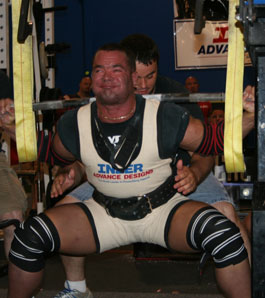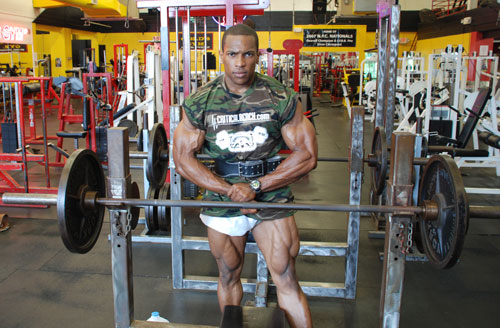If you've never heard of a "positive nitrogen balance" and are wondering what the hell I'm talking about don't feel bad, you're not alone. The term isn't something you hear every other guy in the gym talking about. But I can guarantee that even though he may not be familiar with the term, every gym rat on the planet knows what happens when you have a positive nitrogen balance-you get big.
The whole thing is pretty complicated but can be explained fairly simply. Nitrogen is a chemical element found in protein, which we know is the primary building block for muscle growth. And in order to pack on muscle mass, you have to take in more protein than your body uses-otherwise you'd lose weight not gain in.
A positive nitrogen balance means that the body is retaining more protein than it is using as fuel or just otherwise excreting (sweat, urine and feces). In other words, the total amount of nitrogen excreted through body functions is less than the total amount of nitrogen consumed through diet or supplementation. That means you've got to have a positive nitrogen balance in order to grow new muscle tissue and get big.
Now you're wondering, "Okay, so I know what a positive nitrogen balance is, how in the world do I know if I've got a positive nitrogen balance?"
Protein, carbohydrates and fat all contain carbon, hydrogen and oxygen molecules but only protein has the additional nitrogen molecule. Given that around 70% of protein is found in muscle tissue, a relatively simple nitrogen test can be conducted to determine if there is a positive or negative nitrogen balance.
The nitrogen test can determine the body's anabolic status-showing whether or not the body is primed for muscle growth by maintaining sufficient protein balance. A positive nitrogen balance will prevent catabolism-the opposite of anabolism-which basically means that the body is using muscle tissue to get the nutrients it needs.
Nitrogen balance can be negative, positive or at equilibrium. By now you should know that a negative nitrogen balance is bad. It means that your body is in a catabolic state and is more or less cannibalizing muscle tissue to meet its nutritional needs. A positive nitrogen balance puts your body in an anabolic state, which is what you want. Here, your body is primed and pumped for muscle growth. It also means that your body is sufficiently recovering from your workouts.
A nitrogen balance that is at equilibrium indicates that no progress is being made but the body isn't in a catabolic state either. Here, nitrogen intake and loss are the same. You won't get any bigger but at the same time, at least you're not losing muscle too, so even though it's not ideal it's better than a negative nitrogen balance.
 Since about 90% of nitrogen loss occurs through urination, the most common-and widely accepted-method for testing nitrogen balance is done by measuring urine urea nitrogen loss. This test measures the amount of nitrogen in the diet and subtracts the amount excreted over the previous 24 hours and gives you the nitrogen balance.
Since about 90% of nitrogen loss occurs through urination, the most common-and widely accepted-method for testing nitrogen balance is done by measuring urine urea nitrogen loss. This test measures the amount of nitrogen in the diet and subtracts the amount excreted over the previous 24 hours and gives you the nitrogen balance.
If you think that a negative nitrogen balance is caused by not consuming enough protein, you're only partially correct. You also have to take in sufficient carbs and fats too. Yeah, protein is the primary building block of muscle tissue, complex carbs and healthy fats also play a vital role in protein synthesis. Without them, protein may be metabolized for energy purposes, which will ultimately result in a negative nitrogen balance. Overtraining can also result in a negative nitrogen balance. Remember, muscle growth occurs during recovery not training.
Proper nutrition, training hard and getting plenty of rest are the three essential keys to achieving and maintaining a positive nitrogen balance and getting big. First, you've got to take in more calories than you burn and make sure you're getting plenty of protein, along with sufficient complex carbs and healthy fats. Proper nutrition also includes making sure that you are consuming enough vitamins, minerals and other supplements that contribute to proper body function.
Next, you should not just be training, but training hard. Since you're taking the time to do it, you might as well do it right and reap the rewards. And finally, make sure you're getting plenty of rest. Rest entails a good night's sleep and giving your muscles enough time to recover between workouts.
So there you have it-a basic overview of achieve a positive nitrogen balance and why you should care.
More Information About Muscle Building Click Here
Source 4 Foods Never To Eat


No comments:
Post a Comment